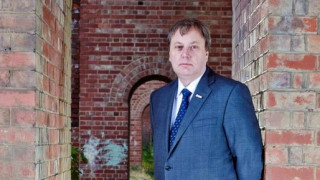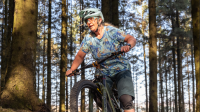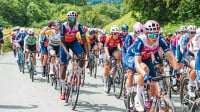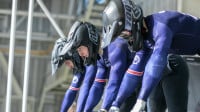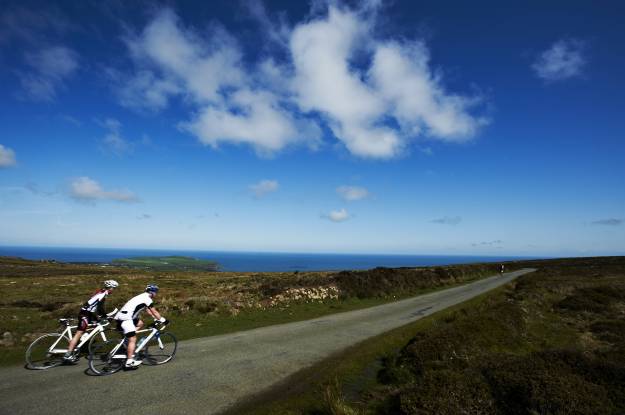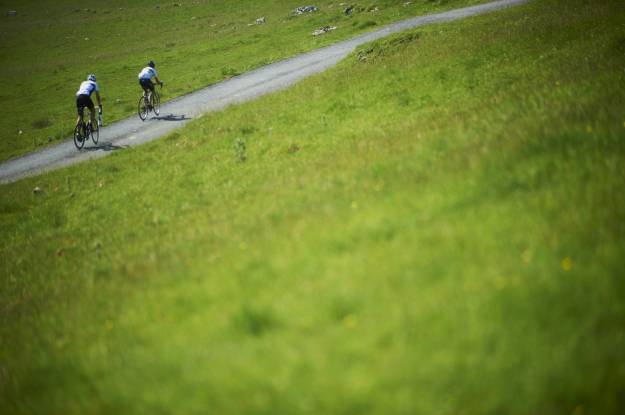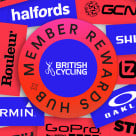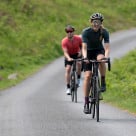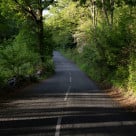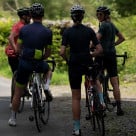A year after his appointment as British Cycling president, we speak to Bob Howden to find out more about his role, his experience and the highlights of his first year in post.
You have almost completed your first year as president of British Cycling. Can you give us an idea of what your role entails?
It all starts with an election into the post at our National Council. The president then sits as the head of the Federation, with a role that’s significantly ambassadorial. I also have a hands-on function linking across both the volunteer structure of the Board and the professional Senior Management Team, as well as chairing National Council. In addition to being President, the Board also elected me as their Chair and so I also oversee their Board meetings and functions. Both are volunteer roles which sit alongside my profession as a business owner within the construction industry.
It’s been a busy 12 months for you. What have been some of the highlights?
As a Yorkshireman, seeing the Grand Départ on my home roads was an unforgettable and emotional experience and the mile upon mile of spectators confirmed just how far our sport has come in recent years. Being part of the podium presentation in Sheffield was special too.
On the subject of podiums, the one at the finish of the Women’s Tour in Bury St Edmunds was special. Marianne Vos filming the crowds from behind the hoardings was a great indication of the impact that the event had on the world’s best riders, being shortly followed by the podium prize winners choreographing their own dance routine on the stage. If any confirmation was needed that Women’s racing is starting to rock and roll that was it.
Away from events; the changes to our Governance structure introduced at last year’s National Council have placed us on track to keeping our Board capacity in tune with our growth. The first phase of implementation called for the introduction of two new appointed Non-executive Directors; from a very large list of applicants Marian Lauder and Alex Russell have now joined us adding new key skills to the Board.
You’ve been involved in the sport of cycling for over 40 years, both as a rider and in a variety of administrative roles. What inspired you to get started?
It all started with a chance encounter on the bike between Beryl Burton and an annoying 14 year old lad riding home from playing football. He latched onto her wheel before jumping past her a couple of miles down the road. Her parting comment included a suggestion of joining a cycling club…and so I did.
Can you tell us about some of the roles you’ve held?
I raced for 25 years but as the waistline grew and successes diminished I’d already passed my exam to be a Commissaire. That came from the idea of putting a little back into a sport that I’d taken so much out of. It just seemed to snowball after that, through my club I was elected to the committee of what was then the West Yorkshire Division before becoming first its secretary, then its chair; a role that was then transferred to the new Yorkshire Region when it was established under the Federation’s Regionalisation re-structure.
The step up to the National Board came in 1999 and with the exception of one year out I’ve been there since then, most of that time as Vice-Chair until Brian Cookson’s well deserved election to the Presidency of the UCI. Over the years I’ve continued to enjoy organising bike races and this still includes the Ryedale Grand Prix that on three occasions has doubled as the National Road Race Championships. This together with commissairing and judging has brought 45 years’ worth of memories and many friendships.
What advice would you give someone looking to get involved in the administrative side of the sport?
If you like spectating at bike races then being an event official is better still, it’s certainly the best view on the day but more than that you really feel a part of what’s happening and sharing a success is better than just seeing one. Since I began my own journey in the sport the role and identity of British Cycling has changed dramatically and it’s been great to have been a part of all that. Now more than ever our volunteers are vital to us continuing this journey, so don’t hesitate - you will be welcomed with open arms and you really can make a difference.
What have been the highlights of your time spent working in cycling?
Where do I start? There have been so many. Becoming President was for me the ultimate honour in the sport that I love. It was something I’d never set out to achieve and I will always be grateful to those who had the confidence in me, encouraging me along that journey. In all of that process there have been many highlights forged from working with great teams of like-minded people.
Seeing a membership grow from the low teens of thousands to a figure rapidly approaching 100,000 is a tremendous validation that we have moved from a membership of need to one of choice. In performance terms there have been so many highs and as a collective of those; to see how British Cycling is viewed by our international cycling peers as well as in other sports means so much.
There must have been some difficulties along the way?
Of course, but with most of those comes a lesson to learn and the key is to remain open minded and receptive to changing circumstances and needs. The late 1990s were a challenging period in British Cycling’s history but resolve and the assistance of the National Lottery laid the foundations of perhaps one of the great transformations in sporting history.
And what would currently head your president’s bucket list?
I would love to see the growing culture of cycling being encouraged on harmonised highways that welcome cycling in all its forms. We are fairly new to campaigning but we are making ground with this vital work.
We have come a long way in recent years but we still have work to do in developing equal opportunities, both in competition and the opportunities for our volunteers from grass roots level all the way through to the Board.
If people want to have their say on how the sport is currently being run in this country, what avenues do they have to do that?
If you are a member of a cycling club, that is a good start. From there you can progress through to opportunities such as in event organising or coaching. Most clubs will have a committee structure of like-minded volunteers where your voice can be heard. Then whether as a club delegate or a private member there will be an opportunity to attend your region’s annual general meeting. From there, opportunities will be available to join both workgroups and the board itself. That’s pretty much how I started!

